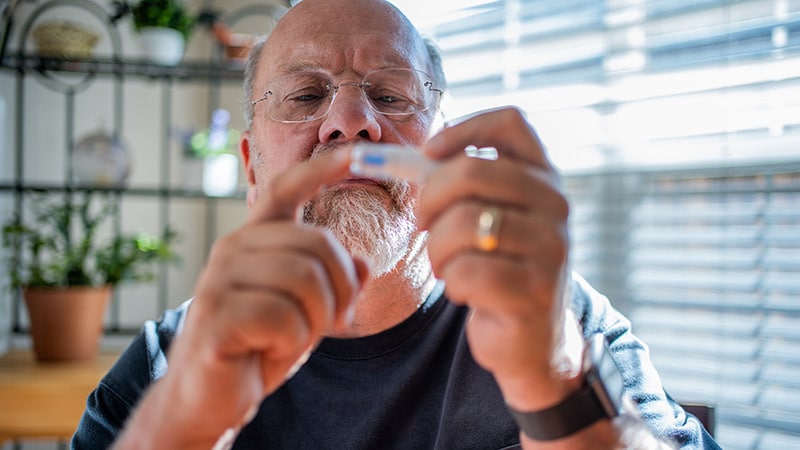Patients with type 2 diabetes and cognitive impairment and their caregivers could find short videos on how to talk to clinicians about deprescribing helpful, according to researchers presenting on May 10 at the 2024 annual meeting of the American Geriatrics Society.
Clarissa Ferguson, MPH, program coordinator at UCSF School of Medicine, University of California, San Francisco, presented research on the Prepare for Your Diabetes Care (PREPARE T2D) deprescribing program, which was adapted for people with cognitive impairment, early Alzheimer’s disease, or related dementias, and their caregivers. They conducted a small study of nine patient-caregiver dyads at Kaiser Permanente in northern California.
The dyads watched four videos, each up to 5 minutes in length. Each video provided information on diabetes care, tips for discussing their diabetes medications with their clinicians, and preparation for upcoming medical visits. Written action plans to help patients initiate conversations for deprescribing with their clinicians were included.
A qualitative analysis found that the videos helped both patients and caregivers improve their understanding of type 2 diabetes and hypoglycemia monitoring, medication risks and side effects, and strategies for talking about deprescribing with their clinicians.
It “bridged the gap between patient and doctor,” one patient reported. Concrete examples of physician and patient communication in the videos were also helpful, according to one caregiver.
However, some caregivers reported that they still feel hesitant to speak up with a clinician, despite the video information. Others said they were confused about whether discussions should take place with the patient’s primary clinician or specialist. One caregiver suggested that the videos should contain more information about the role of blood sugar levels in cognitive impairment.
Several patients with cognitive impairment reported difficulty understanding and remembering key program points without caregiver assistance. Feedback also pointed to need for additional refinements, such as offering online and written formats, and further simplification of information.
Overall, however, patients and caregivers liked the program, according to Ferguson.
The videos “may help facilitate deprescribing as part of effective type 2 diabetes deprescribing interventions for patients with mild cognitive impairment and early Alzheimer’s disease and related dementia and their caregivers,” Ferguson said.
Patients were aged 75 years or older, had been prescribed insulin or sulfonylureas, had an A1c value ≤ 8%, and had mild cognitive impairment or early Alzheimer’s disease. Cognition was determined by chart review and validated assessments. One third of patients were women, and 33% were from underrepresented minority groups. Among caregivers, 78% were women and 22% were from minority groups.
The American Diabetes Association recommends considering person-centered goals of care, particularly for older adults or individuals in poor health or with limited life expectancy.
The researchers reported no financial disclosures. Ferguson is funded by the National Institutes of Health.
Liz Seegert is a freelance journalist.
>>> Read full article>>>
Copyright for syndicated content belongs to the linked Source : Medscape – https://www.medscape.com/viewarticle/video-education-helps-t2d-patients-mild-cognitive-impairment-2024a100095j
